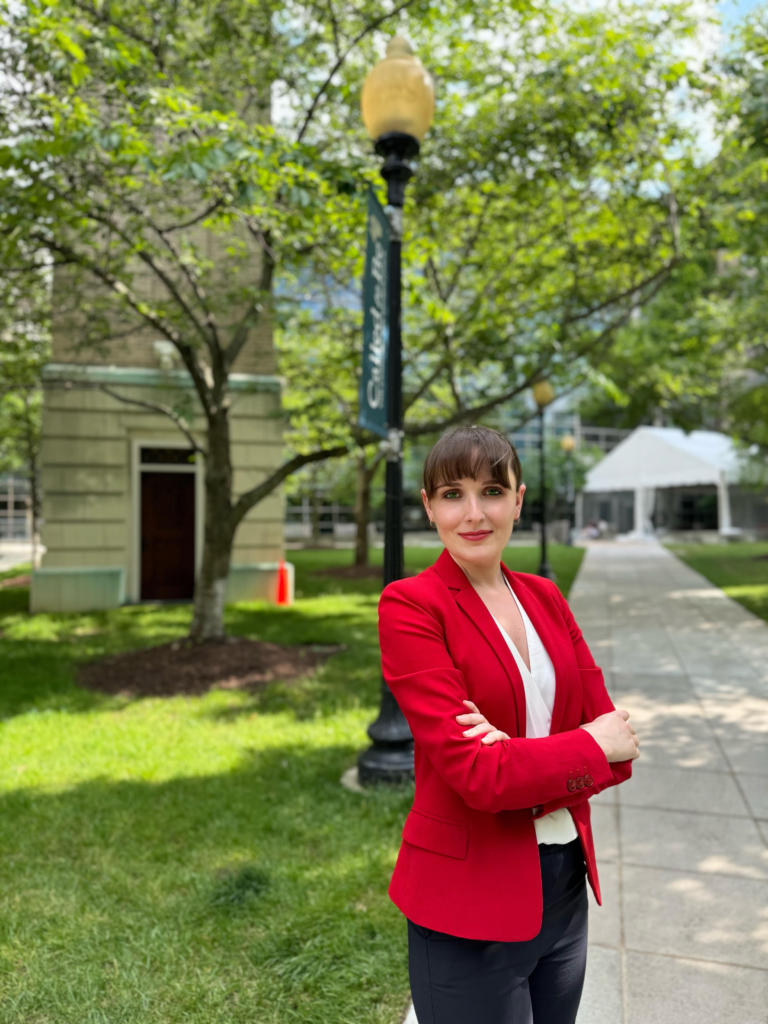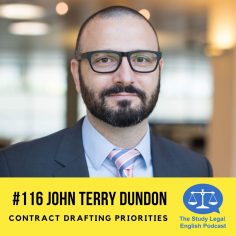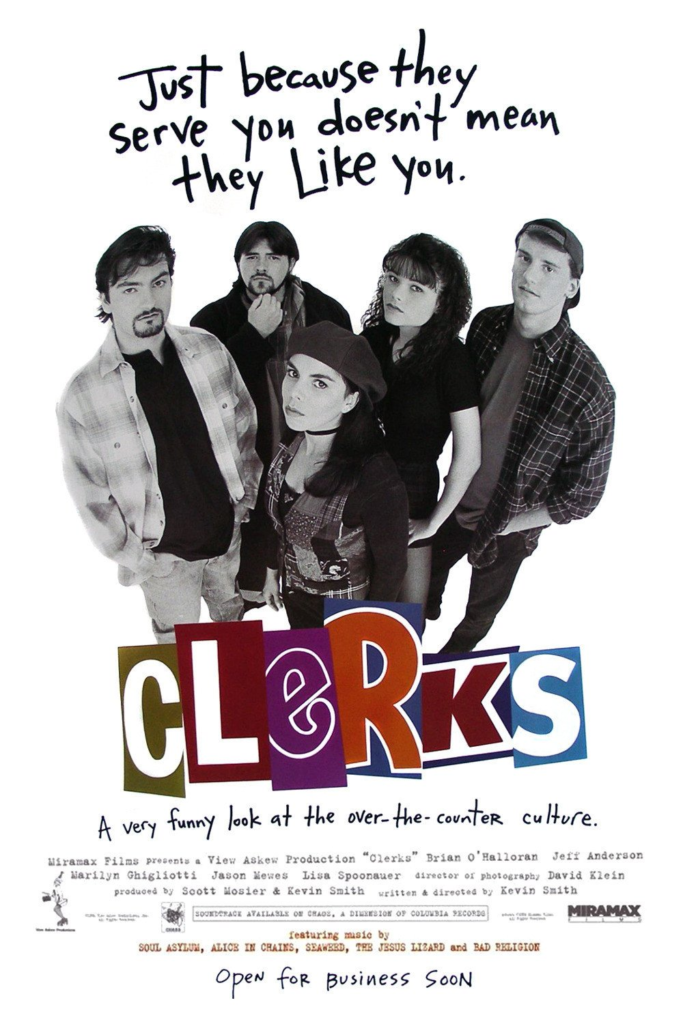
Post by Salome Adeishvili, who just completed her first year of Georgetown Law’s Two-Year LLM and will graduate in Spring 2025. Salome is from a small town called Samtredia in Georgia. Fun fact from Salome: Samtredia translates as “three pigeons.” 🙂
July 2024
Dear Diary (and Future Readers),
Are you curious about what happens after the happy ending? After all those celebratory LinkedIn posts about securing an externship? The truth is that adjusting to a new position is not always smooth sailing. Yes, life marches on after the happy ending, but it is not all roses and unicorns. The first steps are often filled with fear and doubt, which is a natural part of life. But I am here to share my experience of navigating these uncertain moments and the fear of not fitting in. Hopefully, you can benefit from reading about my journey.

In the first part of this blog, I will cover the technical aspects of an externship, particularly how to ensure that you fulfill Georgetown Law’s requirements and deadlines so that your hard work pays off. In the second part, I will share my experiences in the field itself. The latter will have subsections that will discuss my externship journey, highlighting the skills I already possessed, areas where I aimed to improve, and practical advice for future students preparing for similar opportunities.
- Technical aspects of the externship
At the start of your externship, you will receive a detailed email from the director of the LL.M. Academic Externship Program outlining your duties and deadlines for various required document submissions. Make sure to mark all the dates and carefully check that you complete each required step. Key documents include the Externship Goals Form, Weekly Sheets, and the Reflection Memo.

In the Externship Goals Form, you will (1) outline your objectives and (2) detail the legal skills you hope to develop, the types of professional experiences you aim to have, and how you plan to achieve these goals. You will also need to reflect on the feedback your externship supervisor provides about your goals. Thinking ahead about your goals can shape your path and motivate you to excel in your externship.
Weekly Sheets need to be filled out at the end of each week. They capture what you learned, what you did, and how those experiences influenced your perspective on the externship. This weekly summary can help to sum up those five days of your life and reveal the dynamics of your work, showing whether your path is monochromatic – routine and unchanging – or multi-colored – out of your comfort zone and full of exciting challenges.
The Reflection Memo is due at the end of the externship. Since I still have a month to go, my thoughts on it are still forming. I will share my experience of writing the Reflection Memo in my third and final blog post about my Summer Externship.
- Field experience
In this part, I’ll reflect on my externship experience, focusing on the skills I brought to the table, those I needed to develop, and advice for future students preparing for similar opportunities.
- Skills I Already Had
Before starting my externship, I had the advantage of completing the first year of my Two-Year LL.M. Program, which included a comprehensive course, Introduction to the US Legal System. This class provided me with a solid foundation in the workings of the US legal system and the key principles of the common law. Additionally, my US Legal Research Analysis and Writing class taught me how to draft memorandums effectively, a skill that proved invaluable during my externship. Approaching assignments, especially memos, with confidence and clarity was a direct result of this training.

Moreover, the US Legal Research Analysis and Writing class taught me how to use Westlaw to look up precedent cases, equipping me with essential research skills. This is particularly beneficial for students from countries with civil law systems who are not familiar with common law research techniques. This preparation gave me an edge over other externs who might not have had the same training, especially in conducting research on common law and related issues. Learning these skills in my LL.M. program was incredibly beneficial, setting me up for success in my externship.
- Skills I Needed to Develop
Despite my strong background, I quickly realized that excelling in a law firm required developing new skills, especially for multilingual, international students like myself. Sharpening my communication skills and improving my time management became top priorities. The ability to clearly verbalize ideas and efficiently manage multiple tasks is crucial in a fast-paced legal environment, where even a single punctuation mark in an email can significantly alter its meaning and tone.

While my LL.M. program at Georgetown Law did not formally cover these nuances, insights into correct communication skills were subtly embedded throughout classes, particularly in Fundamentals of Legal Writing. This class introduced us to the world of US legal writing and its practices. My Drafting Contracts professor often emphasized that small stylistic mistakes in emails could unintentionally convey disrespect, despite our good intentions. This lesson underscored the importance of understanding the unwritten rules of business communication in the legal world. Adjusting to these nuances has been crucial for navigating different cultural and work ethic norms, ensuring I communicate effectively and professionally in my role.
- Advice for Future Students
In addition to the other points I have discussed, another top piece of advice for students preparing for an externship or internship is to remain vigilant and proactive. Always seek clarification when uncertain and do not hesitate to ask questions, regardless of how trivial they may seem. Double and triple-check your work meticulously, as you will be dealing with real cases that can have a significant impact on people’s lives. It’s crucial to verify everything with your supervising attorneys to prevent errors. Remember, this experience goes beyond theory—it’s about real-world practice where mindfulness is crucial.

In conclusion, the externship journey extends far beyond the initial excitement captured in celebratory LinkedIn posts. This journey will push you to grow, adapt, and learn how to navigate both the technical demands and the practical realities of the legal profession. From meticulously managing documentation and setting clear goals to refining communication skills and adapting to new cultural and professional norms, each aspect of your externship can contribute to your personal and professional development. Each step towards the second happy ending – completing the externship – marks both personal growth and readiness for the challenges ahead in the legal profession.
******************
Are you a current student or an alumnus of the Georgetown Law Two-Year LLM Program? Would you like to write a post or series of posts for the Georgetown Legal English Blog with your own experience, advice, or ideas? Just email Prof. Stephen Horowitz at stephen.horowitz@georgeown.edu.











